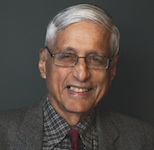"The other as foe"
Currently being watched by riveted and shaken viewers across the US, Ken Burns’ 10-part documentary, The Vietnam War, is relevant for places and issues far removed from the America and Vietnam of the 1960s and 1970s.
During that war’s early period, which was also when India and China fought a short war, many saw “the communist world” as a global monolith where the Soviet Union, China and North Vietnam harmonised their roles for conquering the world. The Vietnam War shows that what the American forces were up against in Vietnam was not international communism but wounded nationalism. Ho Chi Minh and others like General Giap were Vietnam’s admired leaders, not agents or followers of the Kremlin or Mao. Foreign intervention, not capitalism, was what Vietnamese men, women and children were resisting.
The US lost immense quantities of blood and treasure in Vietnam before recognising that nationalism was a stronger force than ideology. Then the US forgot what it had learnt, and Afghanistan and Iraq followed. Now, Trump appears to threaten Iran and North Korea with devastation.
The need for an enemy seems universal, as is the compulsion to see the foe as evil. The Vietnam War reveals that at least for some American soldiers, despising the Vietnamese was central to their war in southeast Asia. When, from the 1980s, communism seemed to sink below the horizon, the concern of those dependent on a good-versus-evil clash was allayed with the arrival of “Islam”.
For Americans, “Islam” arrived on September 11, 2001, wearing a terrifying face. Suddenly the world seemed more dangerous than before, but also less complicated. There was once more a “visible” evil to unite against, its terror visible on TV screens, its mosques visible in the landscape, its adherents visible, because of their clothes and beards, on the street. Just as yesterday, Russians, Chinese, Vietnamese and Cubans were all, and above all, Communists, today Afghans, Syrians, Pakistanis and Iranians, and dozens of other groups, including the Rohingya, are all, and above all, Muslims.
There is a difference. Customers today of a good-versus-evil show are not confined to the US, the western world, or the capitalist class. As visible foes, Muslims are available in virtually every part of the world. Muslims don’t make life easier for themselves when they join in dividing the world between Muslims and non-Muslims. True, many Muslims seem to prefer fighting fellow-Muslims, but they seem to banish any unease about this by assuring themselves that their Muslim foe is not a Muslim; he or she is only pretending to be one, or is not in any case a Muslim of the right sort.
Pakistanis now admit that they lost Bangladesh by refusing to see that for East Pakistanis their Bangla identity was a life-and-death question. A common “Muslim-ness” was hopelessly insufficient for political unity.
Today, on her part, Daw Aung San Suu Kyi is in error when, refusing to call the Rohingya by their name, she refers to them simply as “Muslims”. Whether she realises it or not, she thereby contributes to the Muslim/non-Muslim divide so favoured by the simplifiers of our times, people who yearn for an us-versus-them, good-versus-evil clash, which, as Vietnam showed, can prove extremely costly.
First and foremost, the Rohingya, like the rest of us, are human beings. Unlike the rest of us, they have been forced out of their homes and lands in large numbers. They are Myanmar’s outcasts, in that term’s literal meaning. For India to slam the door against them, and to threaten those of them already in India with deportation, is to display a heartlessness which the world may not quickly forget. The argument that, being Muslim by religion, the Rohingya are actual or potential terrorists and therefore ineligible for entry into India has no logic or law behind it, apart from the fact that it shamelessly squeezes out every drop of humanity.
The line is also imprudent because it subjects Indians living in dozens of other countries to current and future hazards. Today, they come for the Rohingya. Tomorrow they may come for the Indians, of whom there are many even in Myanmar, in different parts of that land. Whether they live in India or elsewhere, people of Indian origin have an enormous stake in the legal principle that no one may be discriminated against, or punished, for being linked by blood, ethnicity or religion to a criminal or terrorist.
To welcome a Chakma refugee from Bangladesh, who by religion may be a Buddhist, and a Tamil from Sri Lanka, who perhaps is a Hindu by religion, but deny entry to a Rohingya pushed out of Myanmar, who happens to be a Muslim, would appear to flout the Constitution, not merely the law of humanity.
It would also strengthen the craving, evident today in different parts of our world, for dividing humanity into the good and the bad. In the 1960s and 1970s, it was that craving which took the crushing, all-sided toll captured by the Ken Burns serial.
This article first appeared in the Indian Express
